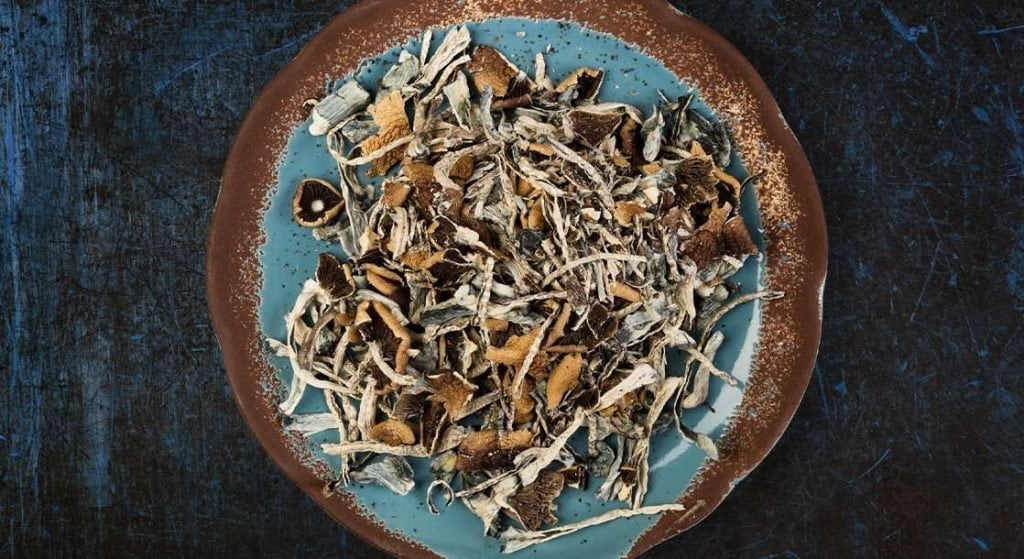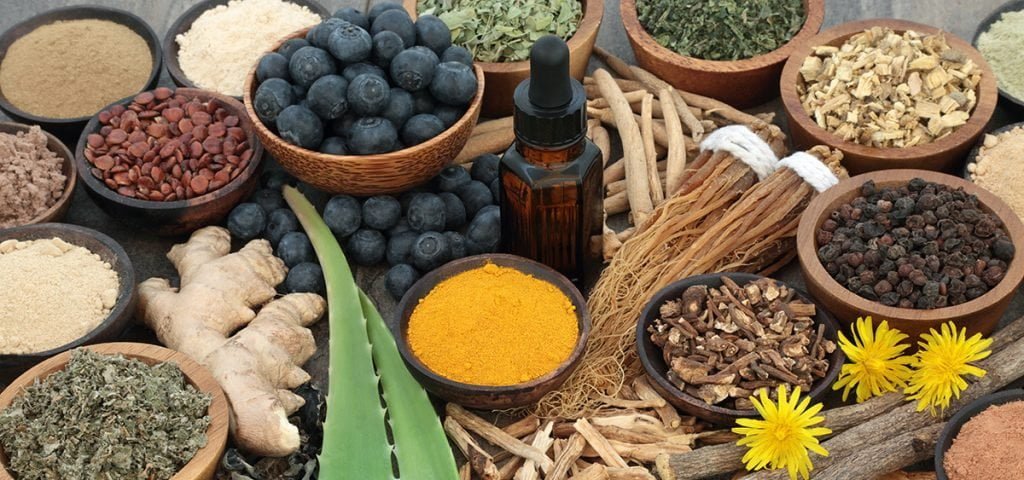Blog
Nature’s Antidepressant: Understanding the Role of Mushrooms in Mental Well-being
While conventional treatments for depression and anxiety exist, many people are seeking alternative and natural remedies. In recent years, mushrooms have gained attention for their potential role in supporting mental health. From ancient traditional practices to modern scientific research, the therapeutic properties of mushrooms are being explored. In this blog, we delve into the fascinating world of mushrooms and uncover their potential as nature’s antidepressant.
Exploring the Mushroom Kingdom
The mushroom kingdom is a captivating realm filled with a diverse array of species, each possessing unique characteristics and medicinal properties. From the familiar and popular shiitake and oyster mushrooms to the more exotic Lion’s Mane and Reishi, the world of mushrooms offers a wealth of potential benefits for mental well-being.
Delving into the characteristics of different mushrooms reveals their intriguing qualities. Shiitake mushrooms, for instance, are known for their rich umami flavor and have been enjoyed in various cuisines for centuries. Beyond their culinary appeal, shiitake mushrooms contain compounds such as lentinan and eritadenine, which have been linked to immune system support and cardiovascular health.
Meanwhile, the Lion’s Mane mushroom, named for its distinctive appearance resembling a lion’s mane, has garnered attention for its potential cognitive benefits. Research suggests that Lion’s Mane contains compounds called hericenones and erinacines, which may stimulate the production of nerve growth factor (NGF) in the brain. NGF plays a crucial role in the growth, maintenance, and repair of neurons, offering potential neuroprotective and cognitive-enhancing effects.
Reishi mushrooms, with their unique appearance and historical significance, have long been revered in traditional medicine. Referred to as the “mushroom of immortality” in ancient Chinese culture, Reishi mushrooms are believed to promote overall well-being and longevity. They contain triterpenes, including ganoderic acid, which have been associated with various health benefits, including anti-inflammatory and antioxidant properties.
Exploring the nutritional value of mushrooms reveals their potential contribution to mental well-being. Mushrooms are low in calories and fat while being rich in essential nutrients such as vitamins B and D, selenium, and potassium. These nutrients play vital roles in maintaining optimal brain function and supporting mood regulation.
Mushrooms have a rich history of traditional uses in promoting well-being and mental health. For centuries, indigenous cultures around the world have utilized mushrooms for their therapeutic properties. Traditional practices have included using mushrooms in teas, tonics, and medicinal preparations to support overall health and vitality.
By delving into the vast and diverse world of mushrooms, we gain insights into their characteristics, nutritional value, and traditional uses. This knowledge sheds light on their potential therapeutic effects on mental well-being. Embracing the mushroom kingdom and its bounty of unique species opens up a world of possibilities for enhancing our mental well-being naturally and holistically.
The Science Behind Mushroom Magic


Scientific research is shedding light on the fascinating connection between mushrooms and mental well-being. Within these remarkable organisms, a treasure trove of bioactive compounds awaits, each with the potential to impact our brain chemistry and promote mental wellness. One group of compounds, beta-glucans, has been widely studied for its immune-modulating properties. These complex polysaccharides have shown promising effects on our body’s stress response system, which plays a significant role in mood regulation. Additionally, triterpenes, another bioactive compound found in mushrooms, have been found to exhibit neuroprotective and anti-inflammatory effects in the brain. These properties can help alleviate symptoms of anxiety and depression by reducing inflammation and promoting the growth of new neurons. Furthermore, mushrooms contain various polyphenols, which are powerful antioxidants known for their ability to combat oxidative stress and promote overall brain health. By understanding the mechanisms through which these bioactive compounds interact with our brain chemistry, we gain a deeper appreciation for the potential of mushrooms as natural antidepressants. As scientific exploration continues, we move closer to unlocking the full extent of mushroom magic and its profound impact on mental well-being.
Harnessing the Power of Adaptogens


Adaptogens have become a buzzword in the world of natural health and wellness, and mushrooms play a prominent role in this category. Adaptogens are natural substances that help the body adapt to stress and promote overall balance. When it comes to mental well-being, specific mushrooms have gained recognition for their adaptogenic properties and potential to support emotional and cognitive health.
One such mushroom is Lion’s Mane (Hericium erinaceus), known for its unique appearance and potential benefits. Research suggests that Lion’s Mane may have neuroprotective effects and stimulate the production of nerve growth factors in the brain. By supporting the growth and maintenance of brain cells, Lion’s Mane may improve cognitive function, enhance memory, and promote overall mental well-being. Additionally, Lion’s Mane has been associated with reducing symptoms of anxiety and depression, potentially due to its interaction with neurotransmitters and the modulation of inflammatory pathways.
Reishi mushroom (Ganoderma lucidum) is another adaptogenic powerhouse that has been studied for its potential mental health benefits. Reishi contains various bioactive compounds, including triterpenes and polysaccharides, which have been shown to exhibit neuroprotective, antidepressant, and anxiolytic effects. By reducing inflammation and oxidative stress in the brain, Reishi may help alleviate symptoms of anxiety and depression and promote a calm and balanced state of mind. Moreover, Reishi has been associated with improved sleep quality, which is crucial for mental well-being.
These mushrooms offer a natural and holistic approach to mental wellness by supporting the body’s ability to adapt to stressors and maintain balance. Incorporating Lion’s Mane and Reishi into your wellness routine can be done in various ways. They can be consumed as supplements, included in culinary preparations such as teas, soups, or stir-fries, or taken in the form of extracts or tinctures. As with any natural remedy, it’s important to consult with healthcare professionals and consider individual circumstances when incorporating mushrooms into your mental health regimen.
Harnessing the power of adaptogens, specifically Lion’s Mane and Reishi mushrooms, may offer a natural and complementary approach to supporting mental well-being. However, it’s important to note that while mushrooms show promising potential, they should not be considered a replacement for professional mental health care. By combining the benefits of adaptogenic mushrooms with other therapeutic approaches, individuals can cultivate a holistic approach to mental wellness and embark on a journey of improved emotional well-being and cognitive vitality.
Integrating Mushrooms into Your Mental Wellness Routine


Incorporating mushrooms into your mental wellness routine can be a transformative journey that adds depth and nourishment to your daily life. There are various practical ways to integrate mushrooms into your routine, allowing you to fully experience their benefits. One approach is to incorporate mushrooms into your meals, whether it’s adding shiitake mushrooms to stir-fries or using Lion’s Mane mushrooms as a meat substitute in vegetarian dishes. Mushrooms not only provide unique flavors but also offer a rich source of essential nutrients and bioactive compounds that can support mental well-being.
Another avenue to explore is mushroom supplements, which provide a convenient and concentrated form of mushroom extracts. These supplements often contain specific compounds found in mushrooms, such as beta-glucans or triterpenes, that have been associated with mental health benefits. Before incorporating mushroom supplements into your routine, it is important to research and selects high-quality products from reputable sources to ensure their effectiveness and safety.
For those who appreciate the calming ritual of sipping a warm beverage, mushroom teas, and elixirs offer an enjoyable way to incorporate mushrooms into your routine. Reishi mushroom tea, for example, has a long history of use in traditional medicine for its potential to promote relaxation and reduce stress. Experimenting with different mushroom-infused drinks can be a delightful way to explore the flavors and potential therapeutic effects of these natural remedies.
When integrating mushrooms into your mental wellness routine, it is crucial to source high-quality mushrooms from reputable suppliers. Look for organic and sustainably sourced mushrooms to ensure their purity and avoid potential contamination. Understanding the recommended dosages for specific mushroom species and products is also important to achieve optimal results and avoid any potential adverse effects. If you are currently taking medications or have underlying health conditions, it is advisable to consult with a healthcare professional before incorporating mushrooms into your routine to ensure compatibility and safety.
By embracing mushrooms as a part of your mental wellness routine, you have the opportunity to tap into their potential benefits and enhance your overall well-being. Whether you choose to incorporate them into meals, explore supplements, or enjoy mushroom teas and elixirs, the key is to approach their integration with mindfulness and intention. By nurturing a deeper connection with nature through mushrooms, you can embark on a transformative journey toward mental wellness and discover the profound impact these natural wonders can have on your mind, body, and spirit.
Nature’s Antidepressant
Mushrooms, with their vast array of species and unique properties, hold great promise as nature’s antidepressant. From traditional wisdom to scientific research, mushrooms have captivated the interest of those seeking natural remedies for mental well-being. By exploring the mushroom kingdom, understanding the science behind their effects, and incorporating them into our mental wellness routines, we can unlock their potential benefits and enhance our journey toward mental well-being. As always, it is important to consult with healthcare professionals and listen to your body as you embark on this natural and transformative path.


